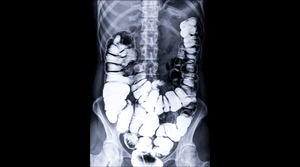Memphis Is King as a Logistical Medtech Destination
As a burgeoning medical device manufacturing hub, there’s more to Memphis than Elvis and Graceland
November 30, 2012
 For nearly 200 years, Memphis has been a crossroads for American distribution. In addition to boasting five Class I railroads and a strong road infrastructure, the city is known as the overnight and ground shipping capital of the world--thanks to FedEx, which is based in Memphis. The Southern metropolis is also the headquarters of several world-class medical centers, including St. Jude Children's Research Hospital, Methodist University Hospital, and Le Bonheur Children's Hospital. This concentration of logistics, infrastructure, and prestigious medical institutions has lured many medical device and pharmaceutical companies to the region.
For nearly 200 years, Memphis has been a crossroads for American distribution. In addition to boasting five Class I railroads and a strong road infrastructure, the city is known as the overnight and ground shipping capital of the world--thanks to FedEx, which is based in Memphis. The Southern metropolis is also the headquarters of several world-class medical centers, including St. Jude Children's Research Hospital, Methodist University Hospital, and Le Bonheur Children's Hospital. This concentration of logistics, infrastructure, and prestigious medical institutions has lured many medical device and pharmaceutical companies to the region.
Medtech Sets Up Shop
In the mid- to late 1980s, several medical device companies began to take advantage of the strategic business resources that Memphis had to offer. As a result, the city has become the second-largest center for orthopedic device manufacturing in the country thanks to a healthy base of medical centers, orthopedic-focused clinical practices, and research institutions. Indeed, one in every seven Memphians works in the bioscience sector, according to the Memphis Bioworks Foundation. Moreover, approximately 30% of the city's gross metro product comes from this sector.
"We've become the distribution center for the orthopedic industry," says Mark Herbison, senior vice president of economic development for the Greater Memphis Chamber. "We have the latest cut-off times for next-morning overnight delivery in the country." Because of its location, the metropolitan area is an ideal nodal point for time-sensitive products, from flowers to lab samples to orthopedic implants. Thus, if surgeons in Los Angeles or New York need a knee implant by the next morning, it will arrive on time if the orthopedic device company is resident in Memphis.
It is therefore hardly surprising that many OEMs and suppliers have set up shop in the city--including the Big Three manufacturers Medtronic, Smith & Nephew, and Wright Medical. "We're a major player in the industry and will continue to grow because we offer the lowest costs," Herbison remarks, comparing Memphis to California; Warsaw, IN; and the Minneapolis/St. Paul region. "We beat their costs by a third, and that's what is important to corporate America."
For leading OEMs such as Medtronic, which maintains its spinal and biologics division in Memphis, the city's location and distribution logistics present the biggest advantage. "Our company's Memphis distribution center delivered more than 150,000 surgical sets to operating rooms across the country last year," remarks Medtronic spokesperson Victor Rocha. That feat was accomplished thanks to Memphis's notable location and its logistics advantage. "The ability to hear about a critical surgery late in the afternoon from one of our sales reps in a hospital and to get our technology into the surgeon's hands the next day is crucial," Rocha adds.
According to data provided by the Greater Memphis Chamber, the Bureau of Labor Statistics Quarterly Census of Employment and Wages for 2011 estimated that medical equipment and supplies manufacturing comprised 17% of the entire manufacturing industry in Memphis. As of last year, there were 42 medical equipment and device manufacturers in Shelby County.
Employing more than 2000 people, UK-based Smith & Nephew is the largest device manufacturing company in Memphis, according to Herbison. In addition to serving as the site of the company's orthopedic division headquarters, Memphis is home to the company's North American distribution operations. Also calling Memphis home are a variety of smaller orthopedic companies--including Active Implants, TiGenix, Regenisys Orthopaedics, and Expanding Orthopedics.
On the supply side, Memphis is also home to a range of contract manufacturers, such as Orchid Design, Millstone Medical Outsourcing, Sandvik Medical Solutions, Engineered Medical Systems, Onyx Medical Corp, and Surface Dynamics. Based in Cincinnati, Surface Dynamics opened a facility in Bartlett, TN--part of the Memphis metro area--in 2009. With 14 employees and growing, the company was lured to Memphis by the cluster of medical device companies, specifically the Big Three, remarks president Leo Glass. "We're definitely committed to the long term for our group and to the Memphis area. Thus, we have plans to expand our operation significantly over the next five years."
Incentives, Grants, and Incubators
The existence of a medtech infrastructure was not the sole reason why companies such as Surface Dynamics were drawn to the Memphis region; other factors included economic and worker training incentives. For example, the state incentivizes companies against tax liabilities. A manufacturer or distributor coming into Tennessee can receive credits to offset the sales tax it has to pay on equipment or machinery, according to Herbison from the Greater Memphis Chamber. It also offers a significant franchise tax credit of up to nearly $5000 per new job created that can be carried on a company's books for many years. In addition, at the local level, property taxes can be reduced for up to 15 years, allowing firms to reduce their property tax liability by approximately 80%.
Besides government authorities, three groups play a role in facilitating medtech industry growth in the Memphis area. The nonprofit Memphis Bioworks Foundation unites public, private, academic, and government groups to expand the local bioscience industry. Dedicated to promoting long-term economic development and job creation, the Memphis Research Consortium is composed of local universities, medical device companies, hospitals, foundations, and other businesses. And the nonprofit organization Life Science Tennessee--whose members include universities, device companies, research institutions, economic development groups, government, and industry associations--seeks to grow the life science industry at the state level through advocacy, education, partnerships, and economic and workforce development initiatives.
Memphis not only helps established companies settle in the city, but it also promotes the development of startups. For example, startups can receive $100,000 grants from the city's Zero to 510 medical device accelerator program, which touts itself as the first cohort-based medical device accelerator in the country. The program begins with a 90-day period that focuses on mentorship, market validation, proof-of-concept, business planning, and prototype development. After presenting their products to investors and being selected to receive funding, the startups then spend the next 90 days developing their prototypes.
Startups find support at the University of Tennessee (UT)-Baptist Research Park, a major force in Memphis that is positioning itself as a world-class incubator for bioscience companies. Scheduled for completion in 2013, the 13-acre park will feature several labs, office buildings, an academy for training researchers using cadavers, and a UT Health Science Center College of Pharmacy building.
Attracting a Skilled Workforce
Like other U.S. regions, Memphis is not immune to the shortage of skilled labor. "It's the number one issue at our Chamber of Commerce and in our city right now--training manufacturing-type skilled employees in our community," Herbison comments. In an effort to attract young skilled workers that are either college or vocationally trained, various organizations in the region are hard at work promoting Memphis as an up-and-coming center. "We're going to have 1000 jobs a year over the next five years in the manufacturing sector that are going to be available in the community," Herbison says.
Historically, the Greater Memphis Chamber has worked with the Memphis Workforce Investment Network and Southwest Tennessee Community College to implement customized training programs for local medical device companies, Herbison notes. As part of this effort, the Big Three device companies have donated machining equipment that can be used for the training program. Other institutions involved with the Workforce Investment Network include Baptist Memorial College of Health Sciences, the University of Memphis, and vocational schools. As a result of these efforts, the 24 Memphis-area colleges and universities that offer bioscience programs produce some 2250 bioscience graduates each year.
There are also several programs and institutions in the Memphis area that provide college and high school students with training to enter the bioscience sector. They include the Memphis Academy of Science and Engineering, which focuses on math and science from grades 6 through 12; East High School, which offers optional engineering and health sciences programs that focus on careers in engineering, design, technology, healthcare, and biotechnology; and Kingsbury High School, which provides biotech and medical science courses, as well as mentors and internships for students.
As device companies and suppliers face pressures to meet customer needs at a faster rate and lower cost, Memphis serves as an appealing location to complete the job. The strong logistical infrastructure combined with the growing and vibrant bioscience cluster benefit both established and startup companies. Add to this the fact that Memphis was named one of the top 10 most affordable cities in North America and Europe to run a biomedical business, and the city on the Mississippi River is sure to continue to attract more medical device companies for years to come.
About the Author(s)
You May Also Like


